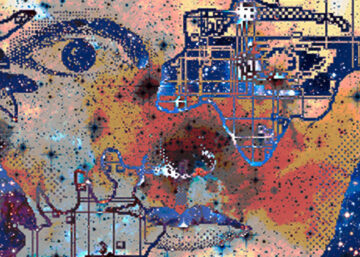 This is the first in a series of three articles on literature consider as affective technology, affective because it can transform how we feel, technology because it is an art (tekhnē) and, as such, has a logos. In this first article I present the problem, followed by some informal examples, a poem by Coleridge, a passage from Tom Sawyer that echoes passages from my childhood, and some informal comments about underlying mechanism. In the second article I’ll take a close look at a famous Shakespeare sonnet (129) in terms of a model of the reticular activity system first advanced by Warren McCulloch. I’ll take up the problem of coherence of oneself in the third article.
This is the first in a series of three articles on literature consider as affective technology, affective because it can transform how we feel, technology because it is an art (tekhnē) and, as such, has a logos. In this first article I present the problem, followed by some informal examples, a poem by Coleridge, a passage from Tom Sawyer that echoes passages from my childhood, and some informal comments about underlying mechanism. In the second article I’ll take a close look at a famous Shakespeare sonnet (129) in terms of a model of the reticular activity system first advanced by Warren McCulloch. I’ll take up the problem of coherence of oneself in the third article.
Augustine’s shameful members
There is a passage in The City of God where Augustine complains about “bodily members” that are not subject to our will (Book 14, Chapter 17):
Justly is shame very specially connected with this lust; justly, too, these members themselves, being moved and restrained not at our will, but by a certain independent autocracy, so to speak, are called “shameful.” Their condition was different before sin…. because not yet did lust move those members without the will’s consent; not yet did the flesh by its disobedience testify against the disobedience of man.
Augustine is obviously complaining about sexuality, and offering the interesting speculation that, before humankind’s fall from grace, sexuality was under the control of the will but only afterward, alas, was such control lost.
The problem is hardly confined to sexuality. One cannot become hungry at will, nor curious, affectionate, playful, angry, and so forth. One can fake many of these things, and more, and sometimes one can fake it until it becomes real, after a fashion. However, we can go beyond faking it. Though the use of literary or artistic means, we can exert indirect influence on our affective states. We deliberately, willfully, set out to read a poem, listen to piece of music, watch a movie, whatever, and our feelings change. Read more »
